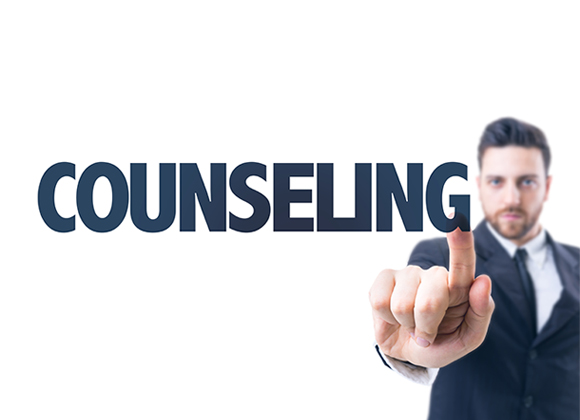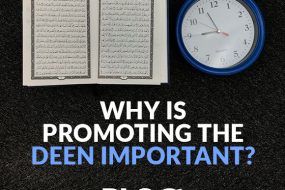
Consider these scenarios: A husband and wife who are both pursuing their careers argue over house chores while their toddler is crying in the background; a mother-in-law and daughter-in-law dual continues everyday as they try to weave through unspoken cultural expectations; a mother and her teenager argue every week about religious versus cultural Islamic practices. These scenarios represent just some of the many psychological issues that our Muslim families undergo everyday, and they in turn have a huge impact on the overall mental well-being of our community.
As a trainee in Pastoral Counselling and now looking to create an Islamic model of psychotherapy as part of my PhD studies, I have noticed a common theme –there just aren’t enough Muslim mental health practitioners to go around and therefore, we have to resort to our hardworking yet overbooked, underpaid and many times under trained Imams (Islamic clergy). Many of the imams at our local mosques are now burdened with carrying additional duties of an “Islamic Counsellor” in which they deal with everything from marital problems, abuse, conflicts with in-laws, parent-child concerns, depression, anxiety, jinn possession, ruqyah, eating disorders, drugs and addictions and the list goes on!
Are Imams sufficient?
Although seeing an Imam tends to be the first approach to seeking help for many of us, it is important to remember that Imams (for the most part) are offering spiritual guidance through advice giving, which can inshaaAllah offer temporary solutions. However, we should not expect our Imams to hold hour-long counseling sessions assessing our medical and childhood history, conducting emotional and thought charts or even doing art therapy! Many of the issues that I have observed and even dealt with in terms of my own clients are not resolved in quick 10-minute sessions. Rather, they must be considered within the context of the individual’s upbringing, religiosity, cultural expectations, and something that I have used a lot in therapy, a genogram, which is essentially a family tree but one that includes emotions, mental illness, immigration and even family secrets. ![]()
Counselling is an art
Counselling is an art, and just like any other profession it requires several years of theory-based training, practicums, hours of seeing clients, and supervision. It would be great if our Imams were afforded an opportunity to be trained in such a way however, since they are already bogged down with so many other Mosque and community related responsibilities, I would like to encourage our youth and adults, both brothers and sisters to consider a career in counseling and therapy.
Why do I suggest this?
First, it is quite common for our sisters to consult an Imam regarding quite personal and heavy topics such as an abusive relationship or problems related to fertility, however, it would be an even greater resource if we had female community-based counselors supporting other sisters. Also, for the brothers, we definitely need men in this field! It is usually quite difficult for our Muslim brothers to openly consult a counselor due to high levels of stigma and many times, due to the fact that they have to speak with a female counselor about sensitive issues such as pornography, addiction, anger management or even abuse.
Second, our religion encourages us to support others during times of need and emphasizes the importance of making others happy. In a hadith we learn that Ibn Umar radiyallahu anhu reported that the Prophet![]() said, “The most beloved people to Allah are those who are most beneficial to the people. The most beloved deed to Allah is to make a Muslim happy, or to remove one of his troubles”. 1
said, “The most beloved people to Allah are those who are most beneficial to the people. The most beloved deed to Allah is to make a Muslim happy, or to remove one of his troubles”. 1
This is similar to what one of my counseling supervisors once said: “Counseling is not holding someone’s hand; it is not walking behind someone; it is not leading someone and walking in front; it is walking beside the person and joining that person in their journey of life wherever they may be and holding their hand only if they ask, and letting go when they ask”.
Examples from the life of our Prophet ![]()
We also learn several counseling-related lessons from the life of the Prophet ![]() who was ultimately the best counselor! The incident of the young man who came to the Prophet
who was ultimately the best counselor! The incident of the young man who came to the Prophet ![]() comes to mind. A youth came to the Prophet
comes to mind. A youth came to the Prophet ![]() asking him permission to commit zina (relations outside of marriage) – we can just pause here and reflect on how trustworthy the Prophet
asking him permission to commit zina (relations outside of marriage) – we can just pause here and reflect on how trustworthy the Prophet ![]() must have been that a young man was able to pour out his feelings! As the hadith continues, the Prophet
must have been that a young man was able to pour out his feelings! As the hadith continues, the Prophet ![]() does not judge this young man, nor does he rebuke him nor does he give him advice. He
does not judge this young man, nor does he rebuke him nor does he give him advice. He![]() actually does something similar to a guided thought and emotional process by asking this young man a series of questions so that he can come up with this own decision! I’m sure with many of us, if our teenager came to us with a request to take someone from school out on a date, we would immediately take them to the imam!
actually does something similar to a guided thought and emotional process by asking this young man a series of questions so that he can come up with this own decision! I’m sure with many of us, if our teenager came to us with a request to take someone from school out on a date, we would immediately take them to the imam!
Additionally, we see several counseling techniques embodied by our Prophet ![]() in several of his interactions. Some of these include hand shaking, making eye contact, completely turning one’s body to speak to someone, listening attentively, and being empathetic. One myth of counseling is that counseling is equal to counsel or giving advice. Counsellors can get into a lot of legal trouble if they gave advice such as “go ahead divorce your husband!” therefore, counselors help the client to come up with their own decisions using a guided thought process. I think we can agree that we are bombarded with unsolicited advice all day about relationships, how to dress, what to cook, etc., so counseling just provides a safe, non-judgmental validating space to have someone listen to your feelings!
in several of his interactions. Some of these include hand shaking, making eye contact, completely turning one’s body to speak to someone, listening attentively, and being empathetic. One myth of counseling is that counseling is equal to counsel or giving advice. Counsellors can get into a lot of legal trouble if they gave advice such as “go ahead divorce your husband!” therefore, counselors help the client to come up with their own decisions using a guided thought process. I think we can agree that we are bombarded with unsolicited advice all day about relationships, how to dress, what to cook, etc., so counseling just provides a safe, non-judgmental validating space to have someone listen to your feelings!
Counseling as a career option
So, if I have convinced you to have a second look at counseling as a career option, here is an example of what the educational path might look like: In high school, feel free to take an array of art and science based courses but perhaps, choose a humanities subject like drama/theatre or visual arts as well as a science based course such as biology or psychology. Then, you will need to complete an undergraduate degree preferably in mental health studies or psychology. After that, depending on your country and the rules of licensure, you may need to complete a post-graduate diploma in counseling or therapy, or perhaps a Masters level degree. This would consist of the theoretical components of counseling as well as a practical internship with a set number of hours that you would have to see clients. The best types of programs are the ones that offer supervision so that your supervisor can assess your skills as a counselor and also allow you to share your own feelings, reflections and self-awareness.
In terms of research, there are studies that have shown significant gender patterns in stigma related to mental health, and help-seeking behavior (Al-Krenawi, 2005). In one study with Muslim women reporting domestic abuse, 62% felt embarrassment in seeking mental health care (Ciftci et al., 2012). Moreover, women in the Islamic household tend to fulfill the role of homemaker and are often involved heavily with their family’s general wellbeing. Therefore, an empirically based, culturally sensitive model of counseling for homemakers is essential to improving the wellbeing of this community. Although exploratory studies have been conducted demonstrating the role of the imam’s role in Islamic counseling, there is a lack of research showing the needs of the community and how they are able to communicate these needs with the imams.
To close, I would highly encourage (not advise) our communities to encourage each other to consider non-traditional career paths and instead of asking our children “what do you want to become when you are older” we ask “what problems do you want to solve” and insha’Allah, at least some of us want to solve problems related to mental and emotional health which can ultimately lead to stronger marriages, harmonious families and thriving communities.
Please share your views about this article in the comments section below. 🙂
About the Author
Kashmala Qasim completed her undergraduate studies in Psychology from the University of Toronto and completed a Masters in Neuroscience from McMaster University. She has also completed the Taleem ul Qu’ran Diploma course from Al Huda Institute, and is currently teaching there. Kashmala has been a lecturer in the Department of Psychology at the Islamic Online University, and has also received Level 1 Pastoral Counselling training from the University of Toronto. Kashmala is also the founder and lead of SPICES Community Engagement at McMaster University, through which she conducted several healthy active living workshops in the community and provided family and marriage counselling sessions. She is now pursuing a PhD at York University in Social Psychology. Kashmala’s research interests include: Socio-cultural challenges faced by the Muslim community in accessing mental health care, coping mechanisms used by Syrian refugees and developing an Islamic model of psychotherapy.
- Tabarani – Hasan, Silsilah Saheeha, Al-AlBani ↩








4 replies on “Counselling-Solution to all your problems?”
MashAllah MashAllah MashAllah such an excellently written article! I loved how you talked about our beloved Prophet’s (pbuh) counseling techniques! May Allah bless you sister Kashmala and give you success in dunya and akhirah! Ameen.
I think everyone need a counseling as they are human being that need to be hear what their problems..its depend on ‘ilm’ or knowledge they have..some individuals can solve by themselves like i said just now depend on their knowledgeble.some people surroundings is not helping people with problems..so, besides of du’a, counseling is a part of healing some peoples heart..to be guide the truth decision…
I required counselling on a certain issue , ca i know where do i contact about it .
Such an AMAZING blog. Very NICELY written. LOVED it. Anxiety has always been a part of my life and for a long time I did whatever I could to distract myself from the pain I was feeling. With a deep understanding of the nature of anxiety, find fear and stress relief. I have grown and changed tremendously. Life is so much better now. This is also a good read.